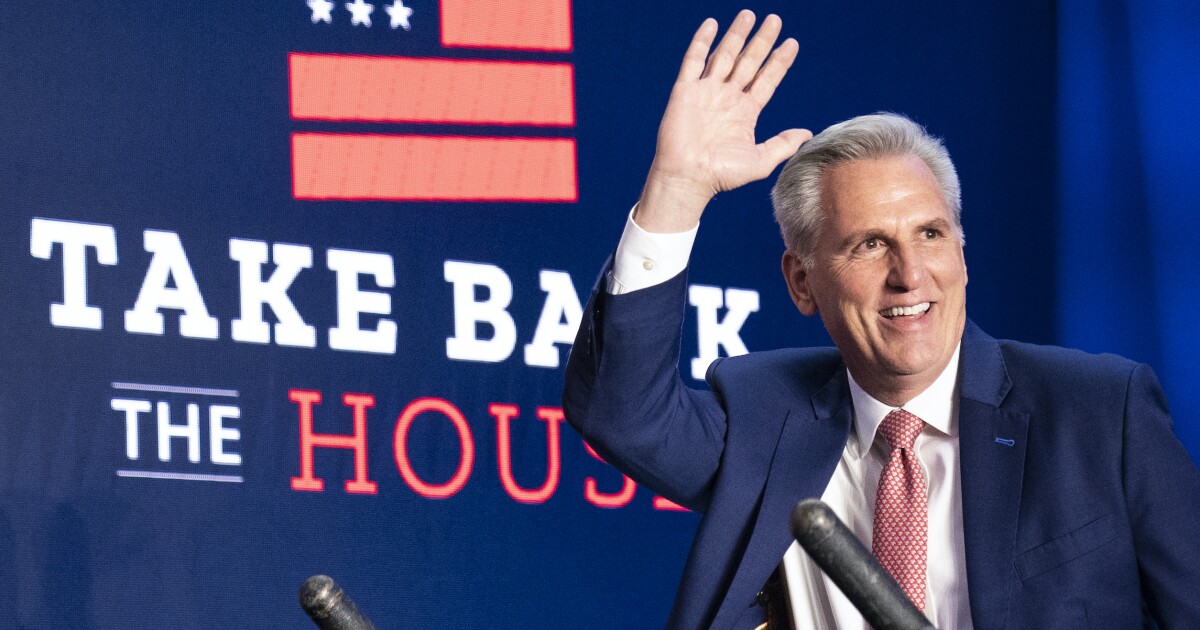

Republican House leadership remains committed to ending proxy voting despite a smaller-than-hoped-for majority materializing for next year.
The GOP made ending the COVID-19 provision, which allows members to cast votes on behalf of colleagues unable to attend votes in person, one of its top targets for a rule change. Speaker of the House Nancy Pelosi (D-CA) again extended the practice Thursday until the day after the new Congress is sworn in.
REPUBLICANS POINT FINGER AT TRUMP FOR ‘NIGHTMARE’ ELECTION OUTCOME
“House Republicans ran on ending proxy voting. Unlike Democrats, we think it’s important to show up to work,” a senior leadership aide told the Washington Examiner.
House Minority Leader Kevin McCarthy (R-CA) confirmed his stance against proxy voting in a letter to Republican members asking for support in his bid for speaker of the House, pledging that under his control, the House will “immediately reopen the Capitol and end the Democrat proxy voting and remote work schemes that have inflicted untold damage to this institution.”
While Republicans are poised to take control of the House once all the votes are counted, the size of their majority has fallen short of expectations. The smaller the majority, the more the GOP will have to strive to make sure it always has more members in attendance for votes than the Democrats. In the current session, the Democrats have only nine more members than the Republicans and often had more than nine members voting by proxy in a vote series.
Anti-proxy voting hard-liners hold that voting while not physically present is unconstitutional. McCarthy and other Republicans filed a lawsuit shortly after Pelosi suspended the in-person voting requirement in March 2020, which the Supreme Court rejected in January.
Rep. Chip Roy (R-TX) was the last rank-and-file member named in the lawsuit after 150 other Republicans removed their names from it. He said at the time that the court should have weighed in on the matter due to the “ongoing damage this blatantly unconstitutional scheme is doing to the House as an institution and our constitutional order as a whole.”
Democrats are generally more supportive of making the practice permanent, to some degree, arguing that some congressional duties should reflect the changes in technology that make remote work possible.
CLICK HERE TO READ MORE FROM THE WASHINGTON EXAMINER
The letters members submit to affirm that they are voting by proxy read, “I am unable to physically attend proceedings in the House Chamber due to the ongoing public health emergency.” Practically speaking, members of both parties have taken advantage of the rule suspension to avoid coming to the House chamber in person for reasons unrelated to the pandemic. Notably, proxy votes nearly double on days when members are supposed to either arrive or leave Washington, D.C.
The rule suspension was initially introduced when the coronavirus pandemic hit as a way to keep the House in business while avoiding crowding in the chamber and allowing those impeded from coming in person to cast votes.






